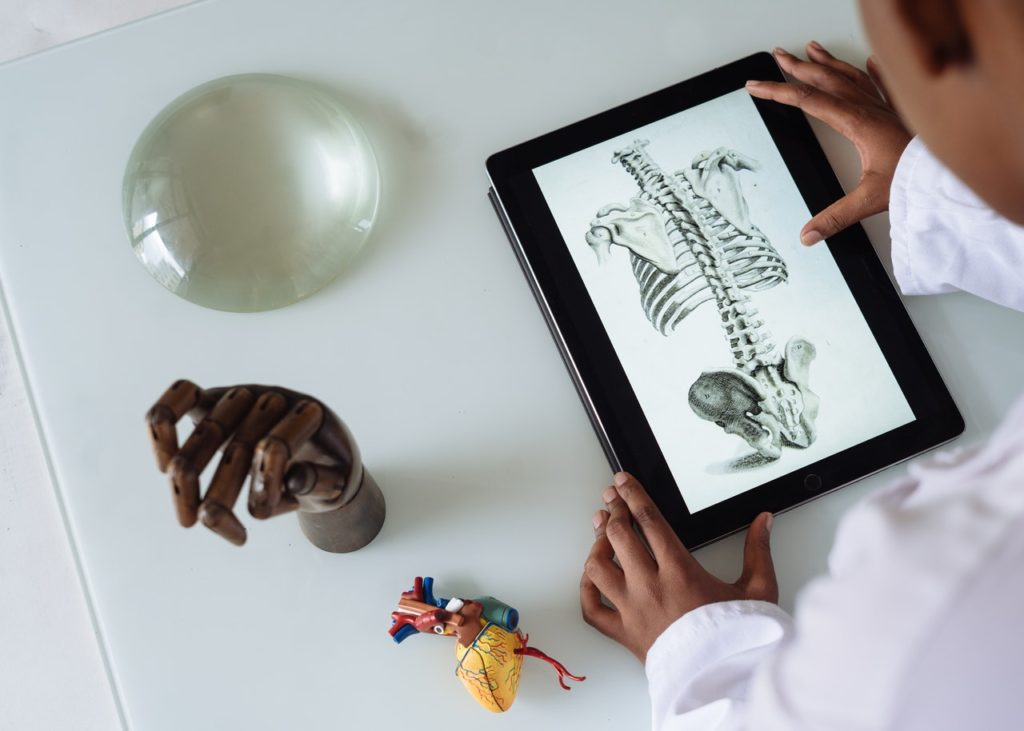Internship Survival Guide
10th january 2021

Dear New Interns,
Welcome to the Internship Survival Guide. Firstly, congratulations on finishing medical school! This is an amazing achievement and one that I am sure you (and your loved ones) are very proud of.
But once the celebration of graduation and balls and holding engraved pieces of paper that say ‘Dr’ on them slowly begins to wane, the time will come to prepare for the next hurdle.
INTERNSHIP.
Intern year can be a mixture of emotions.
EXCITING – because you finally begin working as a REAL doctor.
NERVE-WRACKING – because you have (some, albeit small) responsibility for patient care
TIRING – because you work long hours with scarce breaks
FINANCIALLY FULFILLING – because you finally get PAID to go to the hospital
DAUNTING – because you will be working in a totally new environment, with new people and changing jobs every 2-3 months.
SCARY – because you will encounter many things you do not know and things you will need to ask help for.
FUN – because you get to work with awesome people and learn new things along the way.
All of these emotions are completely normal (and don’t let anyone ever tell you otherwise). Every other intern will feel exactly the same way at some point throughout the year. And the residents, registrars and even consultants will remember times during their internship when they felt exactly the same way. So never feel like you are alone.
I was an intern last year and still remember how it felt to start work on the wards on Day 1. I am not here to preach and tell you to ‘toughen up’ because in medicine we should be changing this culture. Instead, I hope for this guide provides you with useful strategies and resources to help you survive (and thrive) during your first year as a doctor.
Unfortunately, medical school doesn’t prepare you very well for the hand-on job of being an intern. So I’ve written the following article as a ‘Survival Guide’ to Internship. It includes some tips and tricks that can make intern year much smoother.
Alright. Let’s crack on.
I’ve broken my Internship Survival Guide into different sections to help you navigate the article.

Before You Start Internship…
In the weeks leading up to internship, there is a lot of personal administrative tasks to finalise. A lot of the forms you will need to fill out will be given to you by the hospital. These include obtaining a:
- Prescriber number
- Provider number
- Registration with the Australia Health Practitioners Registration Agency (AHPRA)
- Payroll number with your new hospital
- Indemnity insurance (this is often free, check out MIGA, MDA, MIPS, Avant)
This is the bare minimum that you will require before starting work. This will allow to complete prescriptions and complete relevant hospital paperwork. If you are having trouble obtaining these before starting work, it is important to call Medicare, as they can often expedite these things.
Orientation Week
This is the week before you are let loose on the wards. It is usually comprised of lots of lectures and lots of people bombarding you with information (some of it useful, most of it not). This week might also give you a false sense of security as to what to expect when beginning on the wards. I found the most useful part of orientation week to be 1) getting to know your fellow interns and 2) shadowing.

Intern Shadowing
Getting the most out of your shadowing time is one of the most important tips in this Internship Survival Guide.
Shadowing involves following a current intern in their day to day role. This is VERY useful. I cannot emphasize that enough. If you know when your shadowing shifts are, come prepared. Jot down a list of questions that you want to ask. These should NOT be intrinsic medical questions where we ponder the state of human physiology and how it adapts in various disease states. These questions SHOULD be practical things that will help you survive in your first few days.
Here are some example:
- How do I access the patient list? How many copies should I print? What important information needs to be on the list?
- Where do I pick up my phone/pager? How do I charge said device at the end of the day?
- What is my phone/pager number?
- What time does the registrar/consultant expect me to start work? What time should I arrive to prepare everything?
- Where do the computers on wheels (COWS) or other similar electronic device live? Where are the batteries for said device?
- Which wards do the patients in this specialty usually live on?
- Where is the printer? How do I print scripts? Where can I find medical certificate forms?
- What are the common forms/referrals used in the specialty? Where can I find them?
- Where does the pharmacist live?
- How do I talk to radiology about protocolling a scan?
- Does this specialty have clinic time? If so, where are the clinics located? When are they? What is my role in clinic?
- How do I claim my overtime? What forms do I have to fill in and where do I submit them?
- Who are the allied health and nursing staff on this ward?
- Do I have to attend any MDT/Allied Health meetings during the week? What date/time and where are they located? What do I need to have prepared to say at these meetings?
- Where is the toilet? Where is the lunchroom? Where is the food court?
- Who is the intern supervisor on this rotation? Is there someone who is assigned to fill out my end of term assessment?
No question is too dumb. Seriously. Because after your shadowing shifts – it’ll just be you on Day 1.

Your First Day of Internship
Come prepared on Day 1. Pack your bag with a stethoscope, plenty of pens, spare paper, a water bottle and lunch. Bring your swipe card and any useful laminated cards that have important numbers.
It can’t hurt to arrive a little early on your first day. Just to get the computer fired up and print the list. Introduce yourself to the team on your first day. The main people you want to get to know are the residents and registrar as they will be able to answer all of your questions.
Bring snacks and lunch. You don’t know when or if you’ll get a break. It’s good to have something accessible to munch on if its looking like an especially long day. No one can work when they are hungry.
Don’t expect to be super efficient and know everything on Day 1 (or in the first few weeks). You will be slow and things will take you 5 times longer than everyone else expects. That’s normal. If someone is getting upset that you are being too slow, remind them that this is your first day. Always ask for help and never assume or guess how things are done.
*The hospital and all its inhabitants are acutely aware of when the new interns start. They know that things often run slower during the first few weeks and they are EXPECTING this. Don’t stress about not being able to complete tasks at maximum efficiency. You will get better with time.

Documentation
Documentation is the bread and butter of your job as an intern. I’ve included some tips in my Internship Survival Guide to help you help you document effectively and efficiency.
As an intern, you will develop an extreme attachment (borderline unhealthy) with the electronic medical records system. So, my advice would be to use it in your favour. Things you can do to make using clunky EMR’s easier include:
- TEMPLATES! Make lots of these e.g. for ward rounds, medical certificates, examination findings, procedures
- Prep the ward round notes before the actual ward round starts. Some specialties (e.g. surgery) have rapid ward rounds that go faster than Usain Bolt.
- A ward round note has a few components – Situation, Progress, Examination, Investigations, Impression and Plan. The Impression and Plan are by far the MOST important to write down at the time of the ward round. The rest can be filled in later. This will also save you approximately ONE MILLION phone calls from nursing staff what the plan for their patient is.
- Keep a paper copy of the list and a pen with you on ward rounds. Jot down jobs as they come up so you don’t have to trawl through your notes later.
- Make a Discharge Summary Plan. If there are two residents on the team, allocate one to do discharge summaries one afternoon every week. The other resident can hold the phone and perform the ward tasks. Alternatively, work on discharge summaries throughout the week, if you know a patient is approaching discharge.
Article on how to be a whizz at electronic medical records coming soon!
Making Referrals as an Intern
Referrals are something I wish I knew more about before beginning internship. Hence, why I decided to include them in my Internship Survival Guide.
I remember the first time I was asked to pick up the phone and refer a patient to the Gynaecology team. I picked up the phone and was met with a tirade of questions from the Gynae registrar. Suffice to say, she was not impressed by the quality (or lack thereof) of my referral.
If you are asked to refer to another specialty, my advice would be to do the following:
Read the patient’s notes in iEMR and determine 1) what the problem is and 2) why they are being referred. This can be hard to do, especially when you’ve never worked in the other specialty. I always used to ask my resident/registrar ‘What’s the question we want the other team to answer?’ This can help you phrase the referral with a question in mind.
Establish whether you want the other team to (1) give phone advice or (2) physically review the patient. This helps the registrar at the other end clarify what they are being asked to do.
In the first few weeks of internship, I would always write down the relevant history and examination before picking up the phone and making the referral. This will allow you to have all the information in front of you in case the registrar on the other end is particularly inquisitive. With time, you will be able to conduct referrals by just looking at the notes and not having to write anything down. As you gain more and more confidence, you will even be able to refer whilst on the way to getting your lunch or doing five other tasks. I’ll be writing an in-depth articles on referrals soon so stay tuned!

Keys to Prescribing as an Intern
Prescribing is a major role of all junior doctors. Depending on your hospital and location, prescribing will either take place on a paper chart or on electronic medical records (accessible via a computer). The principles of prescribing are the same (aka the 5 R’s):
Right patient
Right medication
Right dose
Right route of administration
Right time
It is helpful to write down a list of commonly prescribed drugs or save them to your favourites list.
As an intern you will be asked to prescribe medications for:
- Pain: know the doses of simple analgesia (paracetamol, ibuprofen) and when to escalate to stronger medication such as opioids. These are all available via eTG. Make sure you remember the pain escalation pathway and to always monitor a patient’s sedation score when they are on heavy medication.
- Nausea/Vomiting: know common doses of antiemetics such as ondansetron and metoclopramide. Know the various routes you can give these by (e.g. oral, intravenous, intramuscular).
- Itchiness/Rash: know common antihistamines and their doses
- Electrolyte replacement: know the oral and IV forms of potassium and magnesium replacement. Each hospital and health service usually has guidelines on what to prescribe based upon electrolyte levels.
- Fluids: know common available fluids (sodium chloride and Hartmann’s) and what suitable rates to chart them.
These are the most common drugs you will be asked to chart so it can save time if you already have an idea of the safe dosages and frequencies.
If you are ever unsure of medication prescribing, the best resources to look at are:
- eTG (electronic therapeutic guidelines): These are great when you are trying to determine which drugs to give for a particular condition
- AMH (Australian Medicine’s Handbook): This online resource is a life saver when you are trying to work out the contraindications, side effects and appropriate dosages of a certain medication. There’s also a childrens AMH for those of you who will work in Paediatrics.
- Your local Hospital and Health Service (HHS) Guidelines: These are usually available through your hospital’s intranet page and can provide specific guidance on antibiotic prescribing and local resistances.
- Your friendly ward pharmacist!!: These guys are amazing resource on the ward. They have often worked on the wards for a while and they know the common drugs prescribed for the patients. Given that 60% of an interns job is medication prescribing, these guys are an invaluable resource.

Patient Consultation during your Internship
Ironically, as an intern your patient contact is limited. During my intern year, the patients saw more of my computer on wheels (COW) than they did of me. That being said, you will have opportunities to talk to patients (usually to discuss medications, discharge planning and follow up arrangements). This is the most fulfilling part of being an intern (probably because it is what we are trained to do during medical school). Whilst your registrar may only have a few minutes to talk to a patient and their family, as an intern you are usually a little less time poor (fingers crossed!). So take the time to talk to patients and their families and really explain what is going on with their care. Trust me, a lot of the time they don’t know or are too worried to ask the busy registrar. They will be IMMENSELY grateful for the time that you spend at their bedside.
If you are ever unsure about something a patient/family member asks you, it is TOTALLY OKAY to say “I’m sorry, I don’t know the answer to that, but I can clarify with a senior member of the team”.
Occasionally, you will encounter extremely difficult or demanding patients. In these cases, it is important to stay calm (easier said than done), acknowledge their concerns and attempt to provide a solution. Also, don’t be afraid to ask for back up from other members on your team. You shouldn’t have to be dealing with difficult patients on your own.
Debriefing as an Intern and Why it’s Important
The first few days/weeks/months of internship will be stressful and overwhelming no matter how competent you are. It is important to look after yourself and plan activities that help you destress and look after yourself. As the saying goes, you cannot pour from an empty cup. It’s important to talk through your experiences on the ward with other interns. They will be sharing the same high’s and low’s as you and are in the best position to understand how it feels.
Self Care during your Internship
The most important section of any Internship Survival Guide!
Establishing regular self-care techniques were basically the only way I survived internship. I joke that I developed more hobbies in internship than I ever had during medical school.
The benefit of internship is that once you are done with work, you can come home and relax and enjoy the evening. You are not forced to study and you have no upcoming exams. So its a great time to restart some old hobbies or pick up some new ones. These activities serve two purposes: 1) they’re fun and you enjoy them and 2) they take your mind off work. Make a list of what you enjoy doing and keep it handy. I’ll be writing more about self-care shortly too!

My Internship Survival Guide: Top 10 Tips
- ASK FOR HELP: Call your registrar (or if they are busy, call the resident). As an intern you are NOT expected to make plans and manage patients by yourself. By all means, assess patients and then run your findings by your registrar. Registrar’s actually get worried when they don’t hear from their interns.
- STAY CALM: When asked to review a patient, begin by taking a history and performing an examination. Stay calm and try and identify the issues and report back to your registrar.
- CALL THE MET: If a patient meets MET call criteria —> call the MET call. You will never get in trouble for calling a MET call that turned out to be nothing. However, you will not be looked upon favourably if you try and manage an extremely unwell patient by yourself.
- SELF CARE: Eat lunch + drink water + go to the toilet. Period.
- STAY WITHIN YOUR SCOPE: If you are asked to do something that is outside your scope/that you don’t feel comfortable doing, then please tell someone! Remember patient safety comes first. Offer to help so that you will feel more comfortable next time.
- BE ORGANISED: Intern year is all about being organised. ****Make a list of ward jobs at the end of a ward round in order of priority. Divide the tasks up between the team and ask for help if you are unsure how to complete a task.
- PRIORITISE: Review acutely unwell patients before completing referrals/paperwork that can wait. The patient with chest pain always wins over the tissued cannula.
- BE HONEST: If you don’t know, say so!
- BE KIND: Just be a Grade A Human. Everyone will thank you.
- YOU’VE GOT THIS: Medical school has prepared you for internship. You have all the knowledge you will need to get through the year. The only new aspect is learning how the hospital works.
Well, I think I’ve rambled on enough. I hope you’ve found my Internship Survival Guide useful.
If you would like more information about rotation-specific advice, like General Surgery, General Medicine or Emergency Medicine.
If you have any specific questions, feel free to email me at askdoctornisha@gmail.com
Happy Interning,
Doctor Nisha








